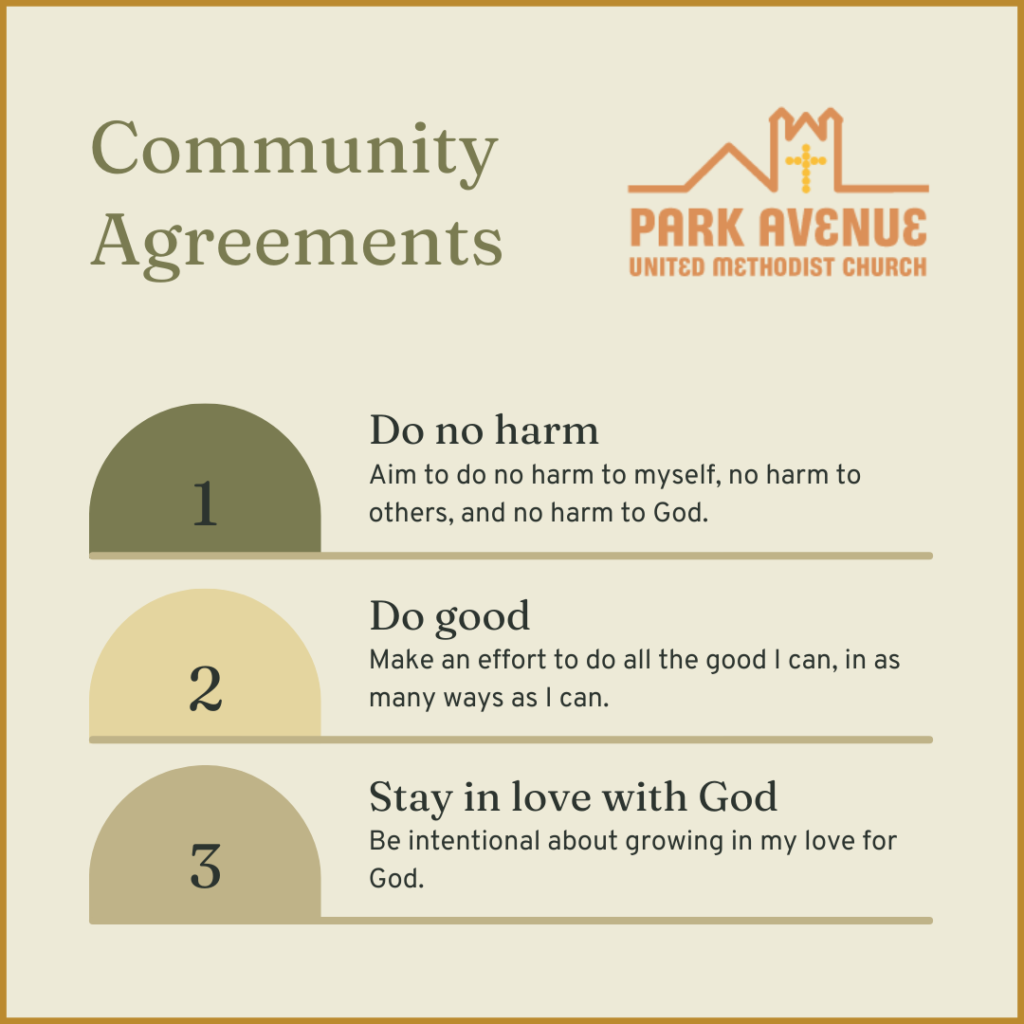Staying in love with God—our third Community Agreement—is foundational for the other two agreements. Without centering ourselves in God’s love, we do not have the power to follow Jesus’ example of doing no harm and doing all the good we can.
We know and rely on God’s love, as John reminds us.* That is, we depend on it. Everything hinges on it. It centers us, frees us, motivates us, challenges us, and, yes, checks us. “God is love. Whoever lives in love lives in God, and God in them.” Full stop.
How do we stay in love with God? How do we grow in our capacity to recognize and rely on this love?
As in any love relationship, staying in love with God requires intentionality. Sometimes called “means of grace,” a number of spiritual practices can help us do this. For example, prayer is a means of grace. Reading the Bible and gathering together for worship are means of grace. John Wesley and many others saw receiving communion regularly as a means of grace.
However, other diverse spiritual practices have been part of a life of faith as long as there have been people of faith.
For example, I know a lot of folks who have found making a daily gratitude list extremely helpful in their faith journeys. It’s simple. It’s connected to your everyday life and experiences. And, as it turns out, gratitude fits the bill for anyone wondering about God’s will for their life. “Give thanks in all things,” the book says, “because this is God’s will for you in Christ.” (1Thess. 5:18).
In other words, God desires us to live with a posture and practice of gratitude. Here’s why: gratitude is grounded in grace (the same root word). Intentionally practicing it helps us recognize the presence of grace in all situations, in whatever happens in our lives, no matter how wonderful or terrible. Here’s why: gratitude is grounded in grace (same root word). Intentionally practicing it helps us recognize the presence of grace in all situations, in whatever happens in our lives, no matter how wonderful or terrible.
And sidebar here: There are plenty of other benefits to practicing gratitude. Check out Chris Windfield’s “13 things I’ve learned writing 1,024 gratitude lists.”
Gratitude is our natural response to the flow of grace into our lives. We breathe in grace, we breathe out thanks, we breathe in grace again, and we say thanks once more.
So, if you are looking for an intentional spiritual practice to stay in love with God, practicing gratitude is a natural means of grace. Why not get a pen and pad and start making a daily gratitude list? I think you’ll be glad you did.
Much love,
Pastor Gregg
*1 John 4:16

